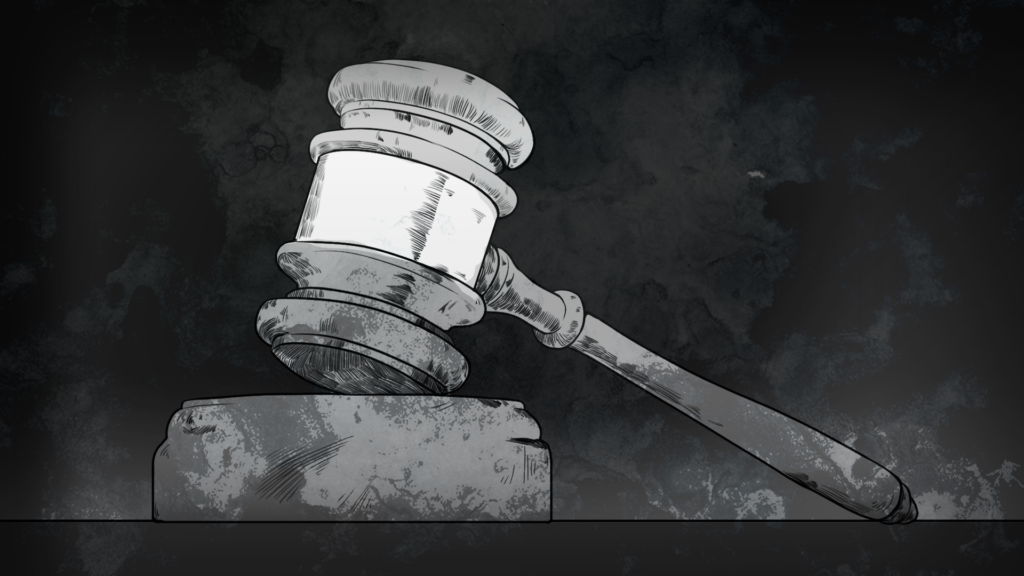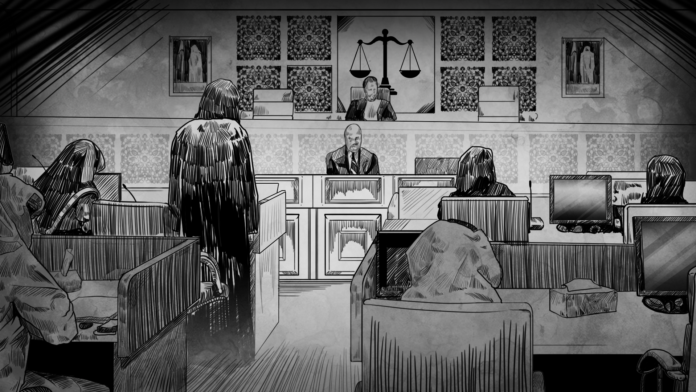Ordinary people fully grasp the intricacies of judicial systems once they experience them firsthand. The system is complex, with numerous details, procedures, steps, and measures that often cause the oppressed party to abandon their rights.
Personally, I am still embroiled in a case that has lasted ten years. I have gone through all the courts and levels of litigation twice. After all this suffering, praise be to Allah, I received a favourable court ruling after seven years. However, the lawyers and the judges have yet to be able to enforce it up to the time of writing this article.
I still firmly believe that justice is preserved, and it certainly is with the One True Judge, but I hope that judicial systems do not hinder the application of justice or obstruct the return of rights to their rightful owners.
In 2014, I filed a lawsuit against a public benefit institution that stubbornly refused to pay the agreed-upon dues after completing the required work. This case was my first experience with the courts in general.
Initially, I had to hire a lawyer to handle the case and its procedures, attend the sessions, and most importantly, write the briefs, which are the primary means of communication between me and the judge.
The College of Law and Political Science at the University of Diyala defines a brief as “a written statement prepared by a lawyer arguing a case before the court. It contains a summary of the facts of the case, relevant laws, and an argument on how the law applies to the facts to support the lawyer’s position.”
Additionally, the lawyer clarified that my case is considered civil, meaning this type of dispute falls under what is known as civil law, which is a branch of private law.
In general, law is either public or private. The Wadaq Legal Encyclopedia defines what each encompasses. “Public law includes administrative law, constitutional law, financial law, and criminal law. Private law includes civil law, commercial law, and the law of civil and commercial procedures.”
The encyclopedia considers civil law as a set of legal rules that regulate relations and disputes between individuals and society or between individuals and the state. In brief, it is “the law of conditions subject to the evolution of modern societal life,” as defined by the Comprehensive Ma’ani Dictionary.
Over the years, my case progressed through all the state courts. It started with the Court of First Instance, which appointed an expert to clarify the financial matters related to the case. However, its judgment overlooked many issues, forcing me to appeal the ruling. Thus, the case moved to the Court of Appeal, which ruled in my favour. My opponent then appealed the ruling, and the case moved to the Court of Cassation, which upheld the appellate court’s ruling.
In a previous article titled Highlights on the Qatari Judiciary, published in Qawl Fassel Online Magazine, I explained that Qatar’s court system has aligned with other Islamic countries and integrated both Sharia and Latin systems to form its unique judicial system. The Latin system, of French Napoleonic origin, differs from the Anglo-Saxon system followed in Britain and America.
A research paper titled An Overview of the Court System in Qatar by Sarrah El Jaili and Ashraf Feshawi explained that the difference between the Latin and Anglo-Saxon systems lies in their reliance on judicial precedents. The Anglo-Saxon system considers them a primary source for rulings, whereas the Latin system views them as a secondary source.
It is worth noting that the lower courts in Qatar’s judicial system are “morally but not legally” bound to the rulings of the higher courts.
The State of Qatar issued the Judicial Authority Law No. (10) of 2003 in conjunction with the issuance of its permanent constitution, and its courts were organized into three levels: primary, appellate, and cassation. Each of these levels is specialized in adjudicating the matters brought before it according to the law, and these levels of litigation are considered Latin.

This means that each case goes through three stages: first, the primary court for initial consideration, then the appellate court to review, amend, or annul the judgment, and finally, the cassation court to examine the legality of the judgment without reconsidering the details of the case, except if the appeal is for the second time or if the case is ready for final adjudication.
El Jaili and Feshawi presented a diverse list of cases handled by these courts, including civil and commercial disputes such as real estate issues and construction contract disputes, as well as labour cases which are now heard before a specialized committee according to the latest amendment to the Qatari labour law.
Additionally, the courts handle family and inheritance cases, administrative cases where the state is a party according to Law No. 7 of 2007, which exclusively defines the jurisdiction of administrative courts, and they also deal with appeals of judgments issued in rental disputes from the Rental Dispute Committees.
They explained that the time required to issue a final judgment in the courts depends on the case type and the litigation level. They indicated that civil and commercial cases in the court of first instance take between 6 to 12 months, while criminal and administrative cases take between 2 to 6 months.
Appellate civil cases take 2 to 6 months, but delays can extend this to 12 months. In the Court of Cassation, civil cases take 2 to 4 months, and criminal cases take six months to a year. They become final if not appealed within the specified time.
The main reason for the delay in obtaining a final judgment in my case was my delay in appealing the judgment issued by the court of first instance, where the appeal must be filed within thirty days. Fortunately, when I first filed my case, my opponent justified the non-payment of dues with accusations that formed a subsidiary case, lasting until the Court of Cassation. After its ruling, which was in my favour, I used it to reopen the case in the court of first instance again, which upheld the higher court judgment, as pointed out by El Jaili and Feshawi, meaning I won two cases.
For the past three years, I have been trying to enforce the judgment, considering the court ruling as binding on the convicted party. Enforcement is the final procedure and the culmination of the court’s judgment under the supervision and oversight of the enforcement judge.

In his article on mandatory enforcement, Zain Al-Abidin Sharar wrote that “the enforcement judge is one of the judges of the primary court, either general or partial, and is responsible for resolving all enforcement disputes and issuing decisions and orders related to enforcement.”
Sharar added that enforceable requires an execution bond for the plaintiff to be able to claim their right. Law No. (13) of 1990 regarding the issuance of the Civil and Commercial Procedure Law defines execution bond as “judgments and orders issued by the courts, settlement agreements recorded in the session minutes or attached thereto, and official documents given the power of enforcement by law.”
Not all binding judgments have execution bonds; only those that acquire the force of res judicata, meaning they are not subject to appeal through ordinary means, have execution bonds.
In his article, Sharar covered these judgments: first, non-appealable judgments from courts of first instance within certain financial limits, and second, judgments issued by appellate courts that affirm or modify the judgments of the first-instance courts.
Sharar added that even if there are extraordinary means of appeal, such as a petition for reconsideration or cassation, this does not prevent the execution of the judgment unless a new ruling is issued that overrides it.
The provisions of Law No. (13) of 1990 clearly states that the enforcement court adjudicates all disputes regardless of their value. It has the authority to issue decisions and orders related to execution, such as seeking assistance from the police and competent authorities, stopping or restoring services, issuing travel bans or lifting them, ordering detention and release, and ordering the disclosure and seizure of assets.
There is no doubt that the execution of judicial rulings contributes to achieving justice and ensures that rights holders receive their rights, which may ensure the stability and progress of society. Therefore, I am confident that my right will be fully granted, God willing, regardless of the obstacles I face.




